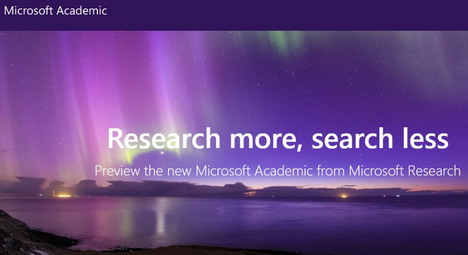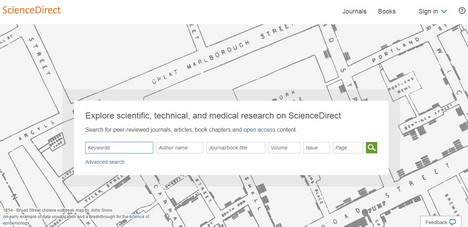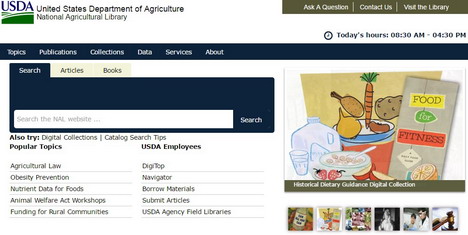Top 25 Educational Search Engines for Students and Academic Researchers
There are many things you will love and hate doing while at the university or college, and research is one of them. You will love it for the new exciting things you discover, but hate it for the tedious hours of digging into thousands of pages both online and at the library. One thing that will for sure save you a lot of stress is having reliable sources and useful websites to dig into more effectively.
Every university has its own database that you are encouraged to use under your username. But in order to produce a good piece of work, you must consider as much relevant information as possible. So below is a list of handpicked search engines that can be used for academic purposes.
1. Google Scholar
Back at high school you used to turn to Google for whatever it is you needed to find. Well, this doesn’t change much at the university or college level, only you will now use Google Scholar. It is the same search engine that limits your results to strictly academic sources, such as legal or nursing documents, scientific articles and etc.
2. iSEEK
iSeek is probably one of the most popular scholarly search engines used by both educators and their students. Its potential in finding relevant information is incredible and you will definitely appreciate the way your results can be filtered by place, subject, author or even school level.
3. Google Book Search
It certainly pays off to go to a library, but unlike at the university library, you can always be 100% sure you will find the book you are looking for using Google book search. Use it for finding references to your subject in both newest and old books, browse the pages that interest you and know exactly where you can find that book if you need to have it.
4. Google Correlate
Google is very cool about coming up with some of the best ways to search for information. Using Google Correlate you can find data that compares (or correlates) with whatever issue you are studying.
5. RefSeek
RefSeek probably has just as many books, articles and newspaper copies as Google does. It filters your results showing specifically the trustworthy academic pages and has no distracting paid links.
Microsoft is a one useful multifunctional system that you can use not only for typing or formatting your paper, but also for browsing an enormous amount (over 40 million) of educational resources. I personally love it for the kind of visual content (infographics and charts) you can find there.
7. Online Journal Search Engine
If you know exactly what you are looking for and need a lot of criteria to narrow down your search, then The Online Journal Search Engine should be your choice. It gives you over 60 filter options and has search capacity over some hundreds of scientific databases.
8. Open Directory of Open Access Repositories
Yet another custom Google search engine, Open DOAR is wired to search free academic resources. This is perfect for interim student research papers, since paying for scientific publications can really make you go broke.
9. Virtual Learning Resources Center
For those who are simply browsing the topic and want just academic websites to pop up in the results – Virtual LRC is a type of a custom Google search that filters out non-academic pages.
10. Science Direct
Science Direct is a simple scientific search engine that lets you find a keyword and has a place to put your main filters (such as author, journal, year) right on the main page.
11. State Legislative Websites Directory
Lawyers will appreciate the possibility to browse all 50 State legislative websites in one place.
12. National Archives
National archives can have a lot of first-hand information that will be useful to you, such as original documents, bills, historic artifacts and etc. This is a place to browse all of them in the same time.
13. Archives Hub
A free search engine that digs through public British archives from Scotland, Wales and England.
14. Library of Congress
It is hard to think of a more trustworthy resource than the electronic archive of the biggest library in the world. With the digital era penetrating into everything, they now allow you to search books, historical photos and much more.
15. National Agricultural Library
U.S. Department of Agriculture has come up with an extensive website where you can find a lot of trustworthy sources on agricultural topics.
16. Smithsonian Institution Research Information System
Have you ever been to the Smithsonian museums in Washington? Now you can have access to all that information online – and that is almost 8 million records!
17. Pixsy
Use these engines for searching visual files. You can even find YouTube videos there, as well as search suitable images for your text by just drawing a sketch.
18. Cornell University Archive
Many universities have their own databases, but very few make them available to anyone who’s looking. Cornell University gave you open access to all their digital academic resources – it would be a shame to miss out on this chance.
19. U.S. Government Publications Catalog
A lot of teachers appreciate links to publications in your works, so here is another resource that allows you to find a lot of things in all the American Government publications, whether they are recent or have been published years ago.
20. UCR Library
One of the best online databases for scientific publications, books and other scholarly resources.
21. The British Library
While the United States have the biggest library, Brits have good ones to brag about as well. And professors love it when you use foreign resources. So check out the British Library for a different kind of perspective on your topic.
22. WolframAlpha
The future of smart search might be here: Wolfram doesn’t just generate similar results, it analyses them for you and answers the questions or tasks you set.
23. Digital Library of the Commons
This is a great source of free international literature, be it dissertations, books or papers.
24. OAIster
Not all the valuable information is written in black and white. You can generate a lot of quality insights and explanations from listening to over millions of records related to your topic. And the best part is that you can listen to them while having lunch or dinner – talk about time saving!
25. Directory of Open Access Journals
Another search engine that is programmed to dig through thousands of scientific and scholarly resources. They also have a strong focus on the peer-reviewed publications and resources.
When coaching fresh students I always give them one main piece of advice: don’t spend more than 40% of your time on research. Writing academic texts is hard enough: you will then have to combine and test the data you got, analyze and pick the most outstanding examples, write a catchy introduction and clear summary. So it’s crucial to have access to reliable and sources of information that will guarantee you efficient and quick research. And where do you personally shop for your data?
Tags: education, search engine















































